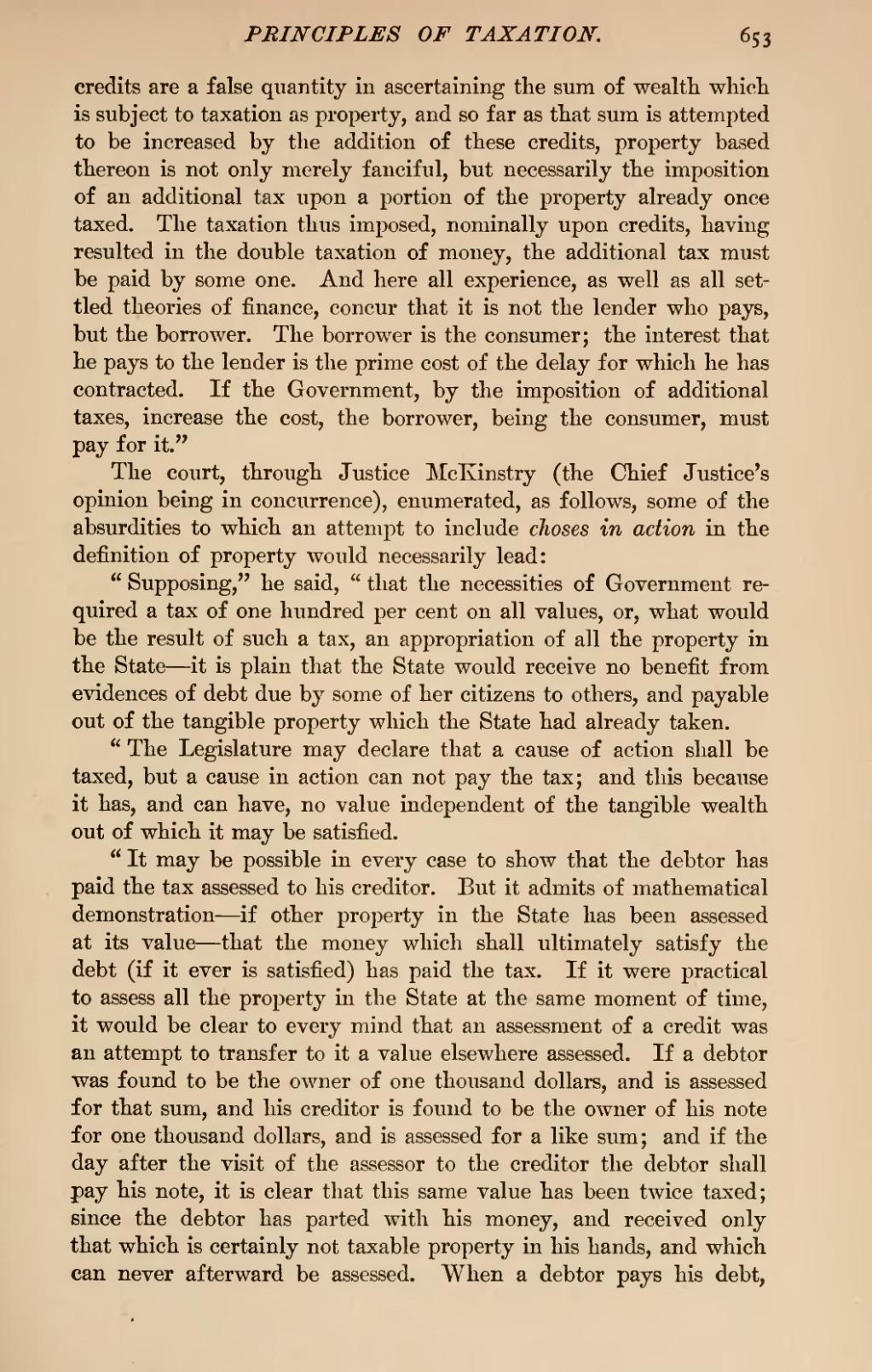credits are a false quantity in ascertaining the sum of wealth which is subject to taxation as property, and so far as that sum is attempted to be increased by the addition of these credits, property based thereon is not only merely fanciful, but necessarily the imposition of an additional tax upon a portion of the property already once taxed. The taxation thus imposed, nominally upon credits, having resulted in the double taxation of money, the additional tax must be paid by some one. And here all experience, as well as all settled theories of finance, concur that it is not the lender who pays, but the borrower. The borrower is the consumer; the interest that he pays to the lender is the prime cost of the delay for which he has contracted. If the Government, by the imposition of additional taxes, increase the cost, the borrower, being the consumer, must pay for it."
The court, through Justice McKinstry (the Chief Justice's opinion being in concurrence), enumerated, as follows, some of the absurdities to which an attempt to include choses in action in the definition of property would necessarily lead:
"Supposing," he said, "that the necessities of Government required a tax of one hundred per cent on all values, or, what would be the result of such a tax, an appropriation of all the property in the State—it is plain that the State would receive no benefit from evidences of debt due by some of her citizens to others, and payable out of the tangible property which the State had already taken.
"The Legislature may declare that a cause of action shall be taxed, but a cause in action can not pay the tax; and this because it has, and can have, no value independent of the tangible wealth out of which it may be satisfied.
"It may be possible in every case to show that the debtor has paid the tax assessed to his creditor. But it admits of mathematical demonstration—if other property in the State has been assessed at its value—that the money which shall ultimately satisfy the debt (if it ever is satisfied) has paid the tax. If it were practical to assess all the property in the State at the same moment of time, it would be clear to every mind that an assessment of a credit was an attempt to transfer to it a value elsewhere assessed. If a debtor was found to be the owner of one thousand dollars, and is assessed for that sum, and his creditor is found to be the owner of his note for one thousand dollars, and is assessed for a like sum; and if the day after the visit of the assessor to the creditor the debtor shall pay his note, it is clear that this same value has been twice taxed; since the debtor has parted with his money, and received only that which is certainly not taxable property in his hands, and which can never afterward be assessed. When a debtor pays his debt,
